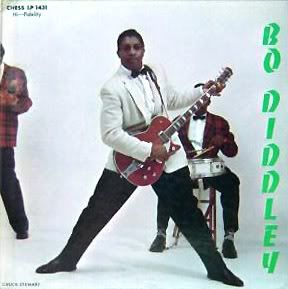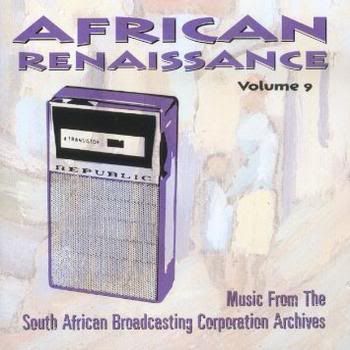
"I was the first son-of-a-gun out there. Me and Chuck Berry. And I'm very sick of the lie. You know, we're over that black-and-white crap, and that was all the reason Elvis got the appreciation that he did. I'm the dude that he copied, and I'm not even mentioned."
- Bo Diddley, 2005
"Bo Diddley" is the debut album by rock and roll pioneer and blues icon Bo Diddley. It is a compilation of his singles since 1955 and collects several of his most influential and enduring songs. An innovative guitarist, prolific songwriter, and sensational vocalist (check out "Dearest Darling"), Diddley had an influence on rock music from Buddy Holly to U2 that was all pervasive.
For anyone who wants to play rock & roll, real rock & roll, this is one of the few records that you really need. Along with Chuck Berry, Elvis, Little Richard, Jerry Lee Lewis, Muddy Waters, B.B. King, and a few select others, Bo Diddley was one of the founders of the form & he did it like no other. Diddley had only one real style, that being the Bo Diddley beat: a syncopated, rhythmic drive, loaded with tremolo. There are many examples of it on this record, and that is about all you need. It's one of those records that, after listening to just a few cuts, will find you tapping the beats on every available surface. Diddley's guitar and vocals have a gruff feeling that recalls bluesmen such as Waters, yet he has his own style. Buttressed by drums, funky piano, and usually maracas, it's absolutely infectious.
Bo Diddley - Bo Diddley (1986)
(256 kbps, cover art included)





















